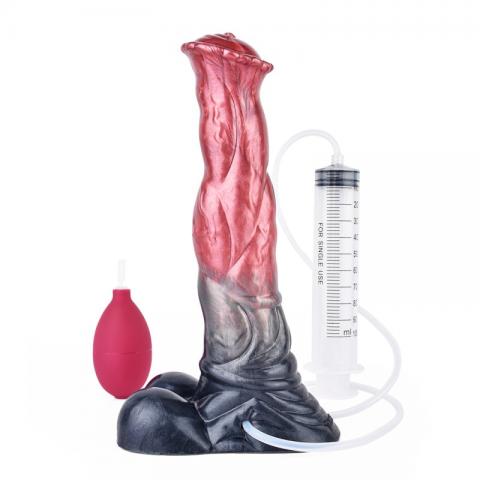Login
 USD $
USD $
 AUD AUD
AUD AUD CAD CAD
CAD CAD GBP £
GBP £ EUR €
EUR €
All Categories
(0) My Cart (0)
LambskinMushroom DildoNew ArrivalCheap
pleated filter cartridge factory
high flow filter cartridge
large flow filter cartridge
membrane pleated filter cartridge
capsule filter suppliers
capsule filter 0.2 micron
capsule filter price
capsule filter
water filter cartridge
New Products
Common misunderstandings of sexual health in sexual life
Common sexual health misunderstanding in sexual life: if you have a venereal disease, you must feel that this is a big mistake. Many sexually transmitted diseases (such as papillomavirus, chlamydia infection girl using vibrator , herpes, etc.) are often quietly harmful to the human body, patients have no sense of abnormality, compared with men, such diseases are more hidden in the female body and are less likely to be detected in time. If not treated in time, sexually transmitted diseases can affect other organs of the female body. For example, papillomavirus may cause cervical cancer; chlamydia infection can cause pelvic inflammation and lead to infertility. Never take it lightly! Myth 2: after passing the routine gynaecological examination, OK recently, a health organization in the United States conducted a survey: most women know nothing about STDs; only 1. 4% of women know a little about chlamydia infection (the most common sexually transmitted disease), which can lead to infertility. Nearly half of the women believe that no matter what goes wrong, they can be detected by a regular annual physical examination-unfortunately, this is far from the case. In China, this situation is more common. A gynecologist at the first affiliated Hospital of Peking University told us that in the gynecology clinic, only a few people volunteered to ask the doctor to have a laboratory test for sexually transmitted diseases. The doctor's advice is: do not rely entirely on routine gynecological examinations. If you suspect that you have a sexually transmitted disease, inform your doctor in time, even if it is highly unlikely, and tell him all the symptoms as they are. For example: odor secretions, painful urination, blisters and so on. Myth 3: if you don't ejaculate, you won't get pregnant; the contraceptive method of ectopic ejaculation is very dangerous. The lubricating fluid (prostatic fluid) secreted by our lovers in foreplay contains part of the semen. And don't place too much hope on a man's control. It's hard to be foolproof if you pull out of the body in front of the best part. In fact, most men have semen leakage, and the number and mobility of sperm is enough to cause pregnancy. If you do not enter the vagina and ejaculate in the vulva, it is not without the possibility of pregnancy. Active sperm may enter the vagina and continue to move toward the uterus. In addition, it is generally believed that there is no need to worry about pregnancy during the menstrual period. But the truth is: there are precedents of having sex during menstruation and getting pregnant. This is caused by irregular ovulation. Most women ovulate about 14 days after the beginning of menstruation, but if the ovulation period is advanced, coupled with strong sperm vitality, it is likely to cause pregnancy. The average number of men who ejaculate at a time is about 300 million sperm, which can survive in a woman for about seven days, and if combined with early ovulation, it is very likely to become pregnant. Therefore, even during the menstrual period, necessary contraceptive measures should be taken. Myth 4: continuous use of contraceptive can not only stop menstruation, but also reduce the risk of breast cancer. We know that continuous use of contraceptive can temporarily stop menstruation. And according to the relevant records, women with fewer menstruation have a low rate of breast cancer girl using vibrator , but this is not as simple as one plus one equals two. In fact, continuous use of contraceptive does not reduce the risk of breast cancer, because whether you develop breast cancer depends on estrogen levels. Women in ancient times rarely developed breast cancer because they began to give birth just after puberty and had to go through several pregnancies in their lives. During pregnancy and lactation, the ovaries are at rest and no longer secrete estrogen. The lower the level of estrogen in women, the lower the risk of breast cancer. So from a purely physiological point of view, the sooner women start giving birth, the better. However, in modern society, our childbearing age has been greatly delayed. There is a misconception that continuous use of contraceptive can reduce the risk of breast cancer. On the contrary, taking contraceptive does not reduce the level of estrogen in the body, it will also increase the level of estrogen. So, in theory, it should be an increase in the risk of breast cancer, but there is no inevitable relationship between the two from the actual survey figures, and women who use contraceptive for a long time do not have to worry too much. Moreover, the estrogen content of contraceptive developed by modern technology is much lower than before. Myth 5: the use of contraceptives will not infect sexually transmitted diseases among many contraceptives, only condoms have this dual function, which can not only prevent contraception, but also prevent STDs. The following is the analysis of the anti-STD ability of several contraceptives: 1. Oral contraceptive: powerless to prevent infectious sexually transmitted diseases. 2, uterine cap, intrauterine diaphragm: some protection for the fallopian tube, but not enough for the vagina. 3. Intrauterine ring: this method of contraception actually increases women's risk of sexually transmitted diseases because other protection is no longer needed to prevent pregnancy. 4. Sterilization: reduce the risk of pelvic inflammation, but the risk of cervical and vaginal infection still exists. Myth 6: oral contraceptive is harmful to health for women who smoke, oral contraceptive does have some harm, they may become victims of heart disease, stroke and other diseases, while non-smoking women do not have to worry about this problem at all. According to a survey by American medical institutions, women who take contraceptive have a 40% to 60% lower risk of ovarian cancer best penis pump , a 50% lower risk of endometrial cancer and a relatively lower risk of ovarian cysts than those who do not take the drug. Oral contraceptive can also help prevent pelvic inflammation because regular medication thickens cervical mucus, which hinders the growth of bacteria. In addition, oral contraceptive reduces the risk of ectopic pregnancy and helps women with osteoporosis during menopause. If you plan to use contraceptives, remind you: 1. If you have a family history of heart disease, stroke and cardiovascular disease, or have had breast cancer anal dildo , endometrial cancer or liver disease, it is best to switch to other methods. 2. If you are over 35 years old and smoke, other forms of contraception are also recommended. 3. Contraceptives can not be taken with antibiotics, because it will affect the properties and lead to the failure of contraception. 4. Contraceptive should take a complete cycle before stopping the drug, otherwise it will cause menstrual disorder.
Realistic dildo | best vibrator | pvc dildo | fat pocket pussy
Realistic dildo | best vibrator | pvc dildo | fat pocket pussy

- FOX M5 Tongue Vibrator
- $34.52
Read More huge dildo
Subscribe for Join Us!
Subcribe to get $10 OFF for order.
- Information
- About us
- Contact us
- Customer Service
- Privacy Policy
- Return Policy
- Shopping Guide
- Payment Methods
- Products
- Dildos
- Vibrators
- Penis Pumps
- Masturbation Cup
- Love Egg
- Contact Us
- [email protected]
- Room 1003, Chevalier House, 188 Chatham Road South, Tsim Sha Tsui, Kowloon, Hong Kong
CopyRight © wlovew.com 2002-2025













-
Follow Us On WhatsApp
My Cart (0)
Follow Us On WhatsApp












